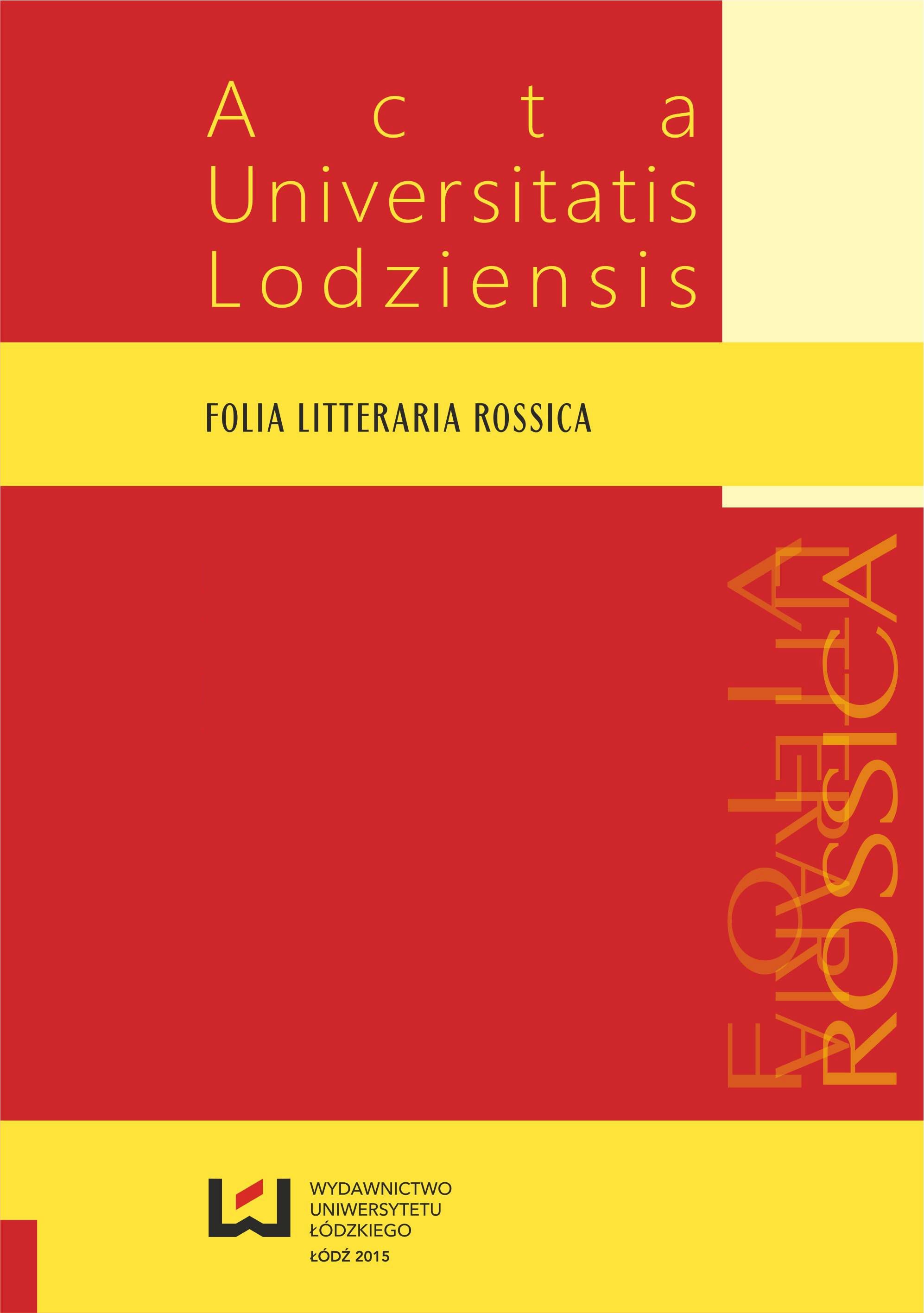Отношение Бориса Пастернака к литературной традиции и современности
Boris Pasternak, the Literary Tradition and Contemporaneity
Author(s): Zygmunt ZbyrowskiSubject(s): Language and Literature Studies, Studies of Literature, Russian Literature
Published by: Wydawnictwo Uniwersytetu Łódzkiego
Keywords: aesthetics; quest; tradition; modernism; simplicity; Boris Pasternak
Summary/Abstract: Boris Pasternak debuted at the onset of the 20th century, when Russian art witnessed radical transformations consisting in a departure from tradition and a quest for new content and forms of artistic expression. His family, however, disapproved of modernist aesthetics. The young poet thus found himself at an aesthetic crossroads and evaded making a decisive choice. On the one hand, he referred to nineteenth-century poetry, and on the other hand, he took an active part in the current literary life and maintained contacts with the Symbolists. He joined the moderate Futurist group ‘Tsentrifuga,’ which, however, did not exert a fundamental impact upon his oeuvre. Pasternak voiced opinions regarding various aesthetic problems and in the 1920s started to free himself from the influence of the then dominating literary milieus. He severed contacts with Futurism (including Mayakovsky), chose a path of his own, and rewrote a number of his early poems. At the beginning of the 1930s he announced his ‘second birth’. This involved evoking the traditions of nineteenth-century art and in particular, realism. Pasternak emphasized the priority of content over form and the merit of simplicity of poetic statements, the principle to which he remained loyal to the very end of his creative path.
Journal: Acta Universitatis Lodziensis. Folia Litteraria Rossica
- Issue Year: 2014
- Issue No: 7
- Page Range: 143-152
- Page Count: 10
- Language: Russian

